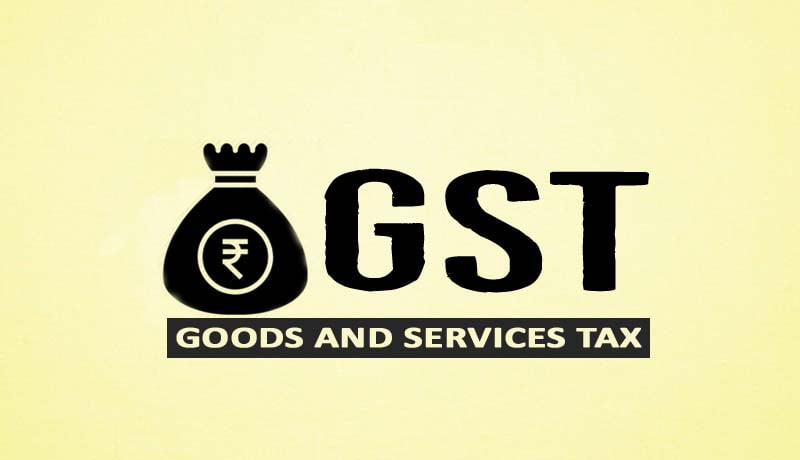GST – Simplifying India’s complex Tax Regime and widening the Tax Base

Accommodation Services – Anti-Profiteering Rules – GST – Taxscan
Accommodation Services – Anti-Profiteering Rules – GST – Taxscan
GST or Goods and Services Tax, India’s most ambitious indirect tax reform plan has been in the news ever since it was mooted by the government. Though GST is expected to simplify and streamline the indirect tax regime in the country, there are strong voices and lobbies for and against it.
GST is a comprehensive tax to be levied on manufacture, sale and consumption of goods and services at the national level and will help integrate State economies by eliminating fiscal barriers between different states. GST will simplify the existing multiple tax structure of Centre and State taxes and lead to the abolition of other taxes such as Central Sales Tax, state-level sales tax, entry tax, stamp duty, turnover tax, tax on transportation of goods and services and a host of other taxes, which currently make tax compliance in India a tricky and cumbersome affair.
An example of the compliance hassles is that manufacturers have to have different labeling, segregated warehousing and controlled selling to ensure that goods on which taxes are paid according to one state regime are not sold in another state where the taxes may be higher or lower. Moving to a single tax regime would simplify the movement of goods, their storage and ability to sell them where the business case is the strongest. (E.g. Even if there is surplus stock lying around in a particular state, a manufacturer may not be able to move goods to another key market where they may be out of stock). This not just improves the flexibility of businesses, but also helps build economies of scale.
GST is also being considered vital in helping build a transparent and corruption-free tax administration in India. It will help eliminate dual taxation because it will only be levied at the point of sale. Currently, a manufacturer ends up paying tax when a finished product moves out from a factory, and again when the product is sold at the retail outlet.
Thus, those in favour of GST argue that a single unified market in terms of tax regime will boost overall economic growth in the country and put India on the fast track of the growth trajectory.
India is planning to implement a dual GST system, under which a Central Goods and Services Tax (CGST) and a State Goods and Services Tax (SGST) will be levied on the taxable value of a transaction. Barring a few exceptions, all goods and services will be brought under the GST umbrella. There will be no distinction between goods and services.
Under GST, the burden of tax will be divided equitably between manufacturing and services. It is also expected that the government will favour a lower tax rate but increase the tax base and minimize exemptions.
Benefits of implementing GST for the Centre and States
Reports suggest that India will stands to gain $15 billion a year by implementing GST as it would boost exports, raise employment and promote overall economic growth by widening the tax base.
While the overall tax rate is expected to fall, the broadening of the tax base and greater compliance could boost tax collections. The GST structure and the provision for setting off taxes on inputs will bring many businesses under the purview of GST. Says R. Muralidharan, Executive Director, Pricewaterhouse Coopers, “Even if one link in a supply chain insists on an invoice, the entire chain will have to come into the tax net”.
A study by the National Council of Applied Economic Research also suggests that “GST can boost India’s GDP growth by 2-2.5%”.
Impact of GST on individuals/ consumers
Under GST, both Central and State taxes will be collected at the point of sale. The Central GST and State GST will both be charged on the manufacturing cost. Individuals stand to gain since prices are expected to fall on account of lower tax rates. The benefit is expected to be passed on to the consumers. (Currently businesses pay taxes levied by the Centre and states, at every stage of the supply chain. This cascading effect of taxes increases the cost of products and services, which ultimately has to be borne by the consumer).
Impact of GST on businesses
GST will protect businesses from the cascading effect of the country’s complex regulatory structure and multiple local taxes.
Under GST, businesses can set off the taxes paid when procuring raw material, which will be favourable for the industry in the long run. Manufacturers, service providers and distributors will see a fall in costs once they start getting a refund on the taxes paid for raw material.
Also, sourcing, distribution and warehousing decisions which are currently less relevant from the business perspective and based more on state level tax avoidance mechanisms will be reorganised to leverage efficiencies of scale, location and other factors relevant to the business. Eg. Companies will no longer need to set up warehouses in every state to avoid tax. One large warehouse could be used to service multiple neighbouring states. It is estimated that a 2% reduction in costs can increase a company’s profits by more than 20%.
Moreover, a resultant fall in prices after implementation of GST will lead to higher consumption and therefore a higher demand for companies to cater to. And this is what will kick-start the economy.
No wonder, the move was welcomed by different sectors in the industry, which includes conventional sectors like agriculture, automobile, food processing and consumer electronics as well as new-age sectors like eCommerce.
The road ahead…
Overhauling the existing tax structure of a country is a challenging task and needs continuous monitoring at every step. Moreover, to roll out GST effectively, India will need to build a robust nationwide IT network and infrastructure. (This itself will be a welcome yet unintended benefit of GST).
The journey maybe long and bumpy, but if implemented successfully, GST will be that much needed pill that can put our sluggish economy back on the growth path.
Says Onno Rhul, World Bank’s India Director, “GST could be a game changer for India…. It’s a big-ticket item. It will unify India as a market. It will also underpin revenues. It could even help India offset the impacts of rising oil import costs or weak monsoon rains”.
That’s the potential GST in India has got to live up to.
References:
Hindustan Times , GST India , The Hindu, Business Today
 Sanjay Bansal is an investment-banking veteran with a knack of concluding large, complex transactions. Sanjay has over 20 years of experience,with a deep and on-ground understanding and exposure of handling more than a 100 mid and large sized transactions, across multiple sectors. He is the Founder and Managing Partner of Aurum Equity Partners LLP. Over the years, Sanjay has developed an expertise of concluding complex transactions that require a nuanced perspective of the client’s business, as well as, the macro environment impacting the client’s decisions. Sanjay is a passionate supporter and enabler of the entrepreneurial eco-system in India. He encourages aspiring and budding entrepreneurs through angel investments in early & concept stage companies. Sanjay is a charter member of The Indus Entrepreneurs (TiE) and the Indian Angel Network. He is also a Fellow Member of RICS (A global real estate body).
Sanjay Bansal is an investment-banking veteran with a knack of concluding large, complex transactions. Sanjay has over 20 years of experience,with a deep and on-ground understanding and exposure of handling more than a 100 mid and large sized transactions, across multiple sectors. He is the Founder and Managing Partner of Aurum Equity Partners LLP. Over the years, Sanjay has developed an expertise of concluding complex transactions that require a nuanced perspective of the client’s business, as well as, the macro environment impacting the client’s decisions. Sanjay is a passionate supporter and enabler of the entrepreneurial eco-system in India. He encourages aspiring and budding entrepreneurs through angel investments in early & concept stage companies. Sanjay is a charter member of The Indus Entrepreneurs (TiE) and the Indian Angel Network. He is also a Fellow Member of RICS (A global real estate body).


